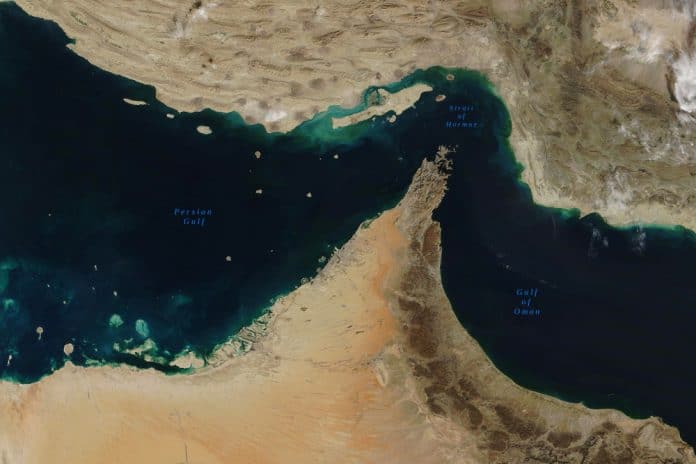The U.S. government has become increasingly concerned for the safety of commercial ships in Iranian waters, after a series of incidents where oil tankers were seized. In a series of interviews, U.S. military officials have made clear that they are taking action to protect shipping activity in Iran’s Strait of Hormuz, a critical waterway for container ships and oil tankers in the Middle East region.
Iran has seized several oil tankers in recent years, and container ships are on watch, too.
The New York Times reported this week that after a series of incidents disrupting commercial shipping activity through the Strait of Hormuz, the U.S. will be proactive in pushing back against future threats. The Pentagon has made protecting these vessels a priority, as evidenced by recent official statements and naval movements.
For example, John Kirby, spokesperson for the U.S. Department of Defense, said in an announcement earlier in May: “The United States will not allow foreign or regional powers to jeopardize freedom of navigation in the Middle East waterways, including the Strait of Hormuz.” Following those words, the U.S. has started increasing the frequency of existing patrols and oversight, although it is stopping short – for now – from sending additional ships and equipment to the area.
Without action, it’s likely that Iran will add to the 15 international commercial ships that have been interfered, attacked, or provoked over the past two years.
The Strait of Hormuz is a critical waterway for world ocean transportation, as it is a strategic “choke point” for ships and can make voyage times much longer if blocked or put out of use. Therefore, it’s in the interest for the U.S. and its allies to intervene to ensure the waterway is safe for container ships and oil tankers, in particular.
Iranian provocations have included boarding oil tanker ships and taking control of the vessel, in an effort to exercise power and dominance in the region, as well as a recent helicopter flyover of a Chevron-operated oil tanker. It’s not hard to see how future incidents could be worse. With just a few more key incidents, delivery times for strategic resources like oil could increase. These developments could disrupt the world economy and overall supply chain, so countries like the U.S. are being cautious.




